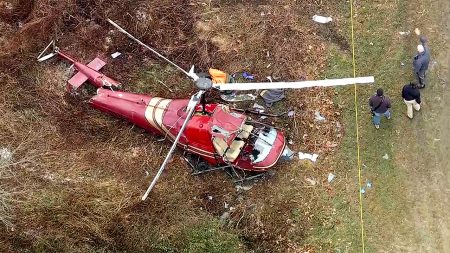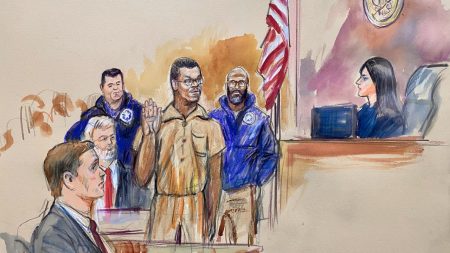Algeria’s Military Emerges as Mediator Following Nationwide Protests
Political Earthquake: How Popular Discontent Reshaped Algeria’s Power Structure
In the shadow of the Atlas Mountains, a seismic political shift has transformed Algeria’s landscape. What began as scattered demonstrations against economic stagnation has evolved into a nationwide movement that has dismantled decades-old power structures, leaving the military—long considered the backbone of the Algerian state—as the final institutional pillar standing amid the rubble of public trust. As protest leaders and military officials engage in delicate negotiations, Algeria finds itself at a critical crossroads that could determine its democratic trajectory for generations.
The uprising, which analysts have described as an “explosion of popular rage,” erupted after years of simmering discontent over corruption, unemployment, and political stagnation. “This isn’t merely about economic grievances,” explains Dr. Amina Benmansour, professor of political science at the University of Algiers. “Algerians are demanding fundamental restructuring of a system that has failed to deliver on promises of prosperity and representation since independence.” The demonstrations began in peripheral cities before engulfing the capital, where hundreds of thousands filled streets and squares, their voices unified despite diverse backgrounds. The protesters’ staying power surprised even seasoned observers, who had grown accustomed to viewing Algerian civil society as dormant or fragmented following the traumatic civil war of the 1990s.
Trust Collapse: How Traditional Institutions Lost Public Confidence
As protests intensified, traditional pillars of Algerian governance crumbled with remarkable speed. The judiciary, long criticized for lack of independence, found itself unable to maintain legitimacy when judges themselves joined demonstrations in their robes. Parliament, viewed by many as a rubber-stamp institution, emptied as representatives scrambled to distance themselves from the regime. Even the ruling party apparatus, which had weathered previous storms of discontent, fractured along generational and ideological lines. “What we’re witnessing is unprecedented in Algeria’s modern history,” notes international affairs analyst Mohammed Larbi. “The systematic collapse of institutional legitimacy has created a governance vacuum that only the military, with its unique position in Algerian society, has managed to navigate.”
Media coverage shifted dramatically as the movement gained momentum. State television stations that initially ignored demonstrations began broadcasting them live as employees staged their own internal rebellions. Independent journalists, previously operating under constraints, found new freedom to report on corruption and power abuses. Social media platforms became critical organizational tools and information sources, circumventing traditional gatekeepers and amplifying voices previously excluded from national dialogue. This democratization of information accelerated the collapse of institutional credibility, as citizens gained unprecedented access to evidence of governance failures and corruption that had been systematically hidden from public view.
The Military’s Unique Position: Between Revolution and Stability
The Algerian military’s emergence as the sole functioning institution reflects its complex historical role in the nation’s development. Founded from revolutionary forces that won independence from France, the armed forces have maintained a special relationship with Algerian society despite periods of controversial political involvement. “The military presents itself as guardian of national sovereignty and the revolution’s principles,” explains defense analyst Ibrahim Touati. “This narrative has proven remarkably resilient even as other institutions lost public confidence.” Military leadership has carefully positioned itself as responsive to popular demands while emphasizing stability—a delicate balancing act that reflects internal debates about the institution’s proper role in a modernizing Algeria.
Unlike other institutions, the military maintained operational cohesion throughout the upheaval, with no significant defections or factional breaks becoming public. This unity has granted it negotiating leverage that other state elements lack. The military’s decision not to deploy force against protesters—in stark contrast to responses to previous periods of unrest—proved pivotal in preserving its credibility. “By refusing to become the regime’s enforcement mechanism, the armed forces maintained the perception of institutional neutrality,” notes conflict resolution specialist Yasmine Benali. “This strategic restraint has allowed military leaders to position themselves as potential mediators rather than obstacles to change, though many protesters remain deeply skeptical of the army’s ultimate intentions.”
Negotiations and Vision: Crafting Algeria’s Future Through Dialogue
The ongoing negotiations between protest representatives and military officials represent uncharted territory for Algerian governance. Discussions have centered on transitional arrangements, constitutional reforms, and mechanisms to address corruption within a framework that preserves state continuity. “These talks are unprecedented both in their transparency and in the diversity of stakeholders involved,” says political transition expert Dr. Karim Hadjali. “Previous reform efforts were typically managed from within the system, but current discussions involve genuine outsiders with independent legitimacy derived from the protest movement.” While the dialogue has produced tentative agreements on electoral reforms and anti-corruption measures, significant disagreements persist regarding the pace of transition and the military’s future political role.
Youth representatives have proven particularly influential in these negotiations, reflecting demographic realities in a country where nearly 70 percent of the population is under 30. These younger voices have pushed for more comprehensive reforms and stronger accountability mechanisms than their older counterparts, who lived through the civil conflict and often prioritize stability. Economic reforms have emerged as another contentious point, with debate centered on how to balance immediate needs for job creation against longer-term structural changes to reduce dependence on hydrocarbon exports. International observers have generally praised the dialogue process while expressing concern about potential manipulation, with European Union representatives emphasizing the importance of genuine civilian oversight during any transition period.
International Context and Regional Implications
Algeria’s political transformation unfolds within a regional context where democratic transitions have frequently stalled or reversed. Neighboring countries watch developments closely, recognizing that Algeria’s size, resources, and historical influence make its trajectory consequential beyond its borders. “Algeria represents a potential alternative model for political change in the region,” observes Dr. Nadia Mebrouk, regional studies specialist. “Unlike some Arab Spring countries that descended into conflict or returned to authoritarianism, Algeria’s revolution has remained largely peaceful while still achieving significant concessions.” This distinctive path reflects both the protest movement’s strategic discipline and the military’s calculated restraint—a combination that has prevented the security collapse seen elsewhere.
The international community has maintained a cautious approach, with Western governments expressing support for democratic processes while avoiding actions that could be interpreted as interference. Algeria’s historical sensitivity to foreign involvement, rooted in its colonial experience and independent foreign policy tradition, has limited external influence on developments. Economic considerations further complicate the international dimension, as European energy security depends significantly on Algerian natural gas supplies. As dialogue between protesters and the military continues, Algeria’s path forward remains uncertain but retains potential to establish a governance model that balances popular demands for change with institutional continuity. What remains clear is that regardless of the specific outcome, Algeria’s political landscape has been fundamentally transformed by a civic awakening that has rewritten the relationship between citizens and state in ways that will resonate for generations.










